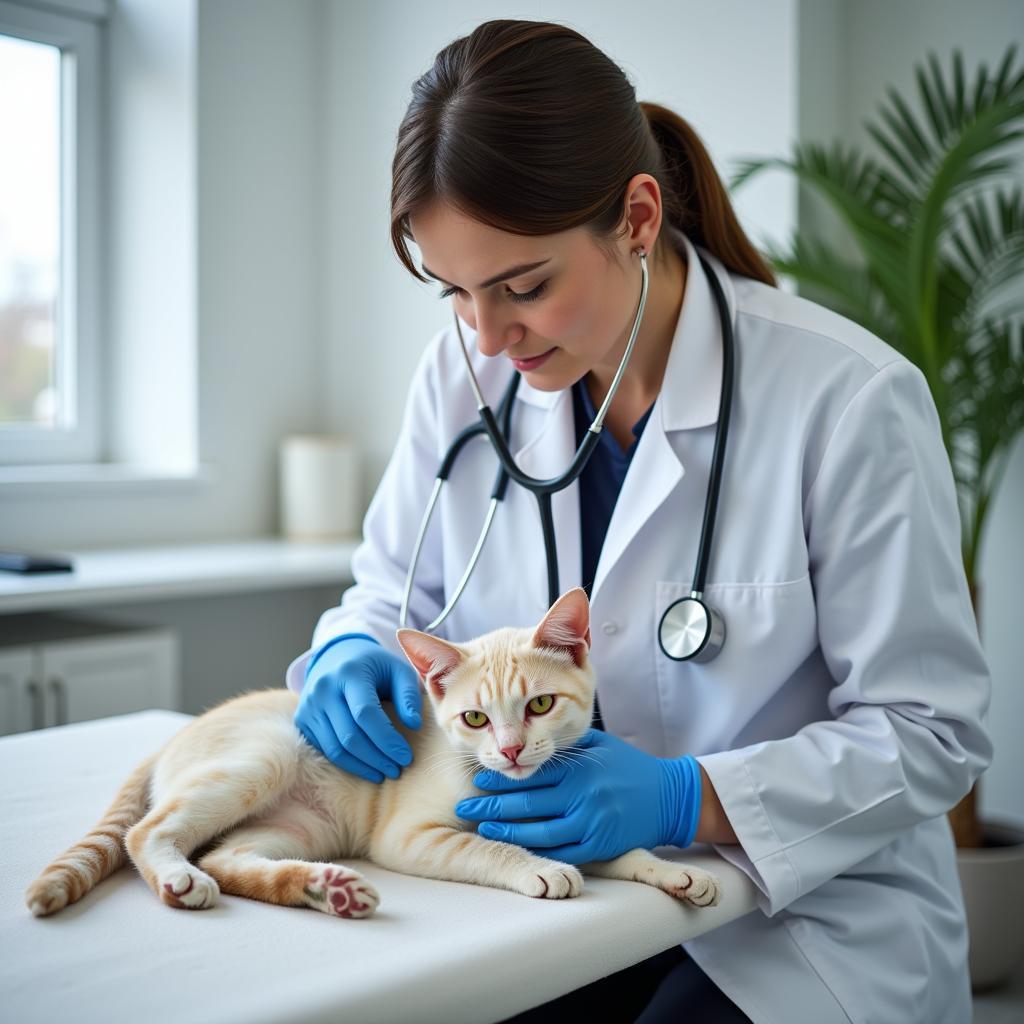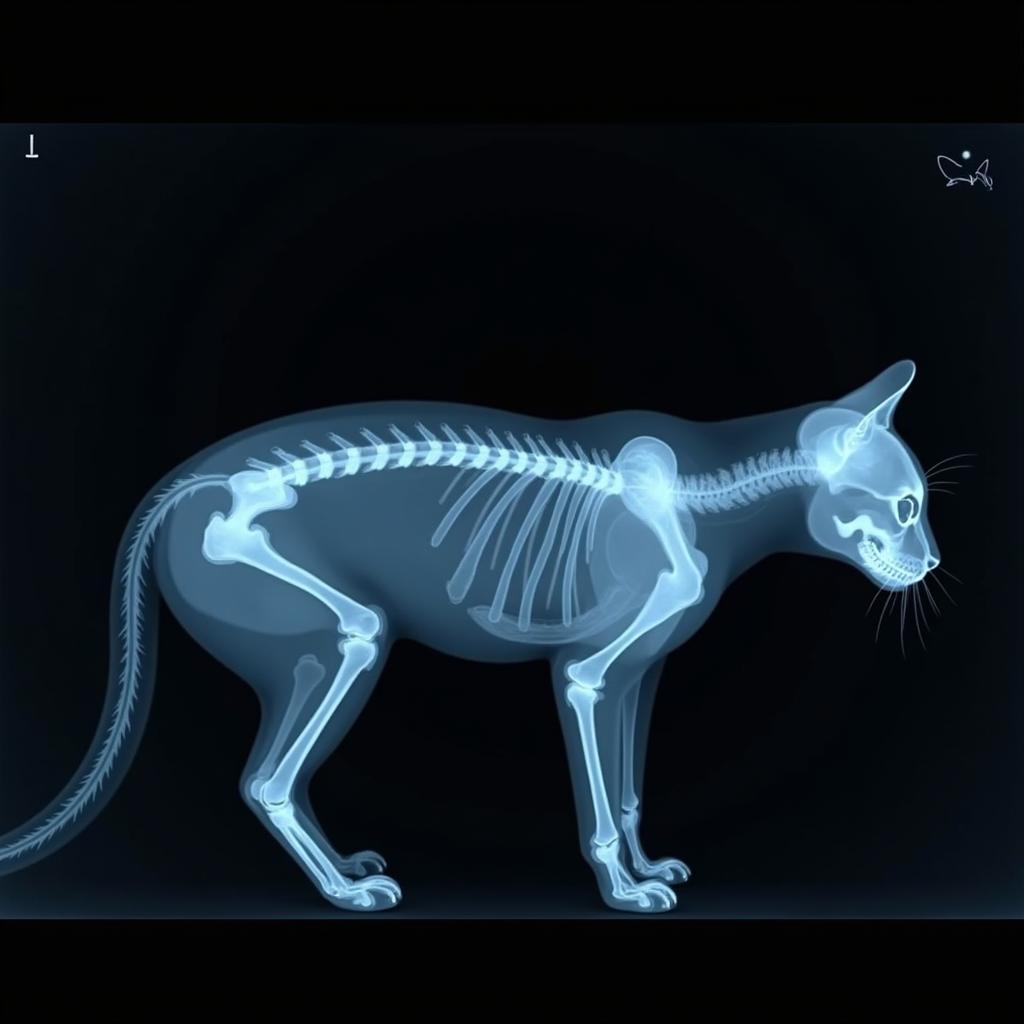Cats are curious creatures and often get into trouble, sometimes leading to accidents like being hit by a car. If you’ve found your cat injured after being hit by a car, it’s crucial to act quickly and provide necessary care. This article will guide you through identifying potential head injuries and breathing problems, and help you understand when to seek professional veterinary assistance.
Identifying Head Injuries and Breathing Problems
When a cat is hit by a car, the impact can cause a range of injuries, including head trauma. Head injuries can be difficult to assess without professional examination, but here are some signs to look for:
- Loss of consciousness: If your cat is unconscious or dazed, this is a clear indicator of a serious injury.
- Seizures: Seizures are a sign of neurological damage and can be a result of head trauma.
- Disorientation: If your cat seems confused, disoriented, or unable to navigate its surroundings, this could suggest head trauma.
- Bleeding from the nose, ears, or mouth: Bleeding from these areas could indicate a skull fracture or other internal injuries.
- Pupil dilation: Unequal or dilated pupils can be a sign of brain damage.
- Head tilting: If your cat is holding its head at an odd angle, this could indicate neurological damage.
Breathing problems can also occur after a car accident, and can be a sign of chest injuries or head trauma. Signs of breathing difficulties in cats include:
- Rapid breathing: If your cat is panting heavily or breathing very rapidly, this could indicate a respiratory problem.
- Wheezing or gasping: A whistling sound during breathing could be a sign of airway obstruction.
- Blue or purple gums: This is a sign of oxygen deprivation and should be considered a medical emergency.
What To Do Immediately
- Assess the situation: First, assess your own safety and the safety of the area before approaching the cat. Look for traffic and other potential hazards.
- Approach the cat calmly: Speak softly and move slowly to avoid startling the injured cat.
- Check for breathing and pulse: If your cat is breathing and has a pulse, it’s important to keep it calm and still.
- Control bleeding: If there is any bleeding, apply gentle pressure to the wound with a clean cloth or gauze.
- Transport the cat safely: Once the cat is stabilized, carefully place it in a secure carrier and transport it to the nearest veterinary clinic.
When to Seek Professional Veterinary Assistance
It’s essential to seek professional veterinary help immediately if your cat has any of the following signs:
- Loss of consciousness
- Seizures
- Bleeding from the nose, ears, or mouth
- Difficulty breathing
- Unequal or dilated pupils
- Head tilting
 Veterinarian Examining Injured Cat
Veterinarian Examining Injured Cat
Expert Advice
“If you’re concerned about your cat’s health after it has been hit by a car, it’s always best to err on the side of caution and seek professional veterinary help,” advises Dr. Emily Carter, a veterinarian with over 10 years of experience. “Even if the cat appears to be fine, there could be underlying injuries that require immediate attention.”
What to Expect at the Veterinary Clinic
When you arrive at the clinic, the veterinarian will perform a thorough examination of your cat. This may include:
- Physical examination: The veterinarian will check for signs of injury, such as cuts, bruises, and broken bones.
- Neurological examination: The veterinarian will assess your cat’s neurological status by testing reflexes, coordination, and sensory function.
- Imaging studies: X-rays and/or CT scans may be necessary to identify any fractures or internal injuries.
- Blood tests: Blood tests can help identify any internal bleeding or other problems.
 Cat Skeleton X-ray
Cat Skeleton X-ray
Recovery and Aftercare
After the initial assessment, the veterinarian will discuss treatment options and potential recovery time. Recovery for a cat hit by a car can be lengthy and will depend on the severity of the injuries. Here are some general guidelines for aftercare:
- Follow your veterinarian’s instructions carefully: This includes administering any prescribed medications and keeping the cat confined to a quiet and safe environment.
- Monitor your cat closely: Keep an eye out for any signs of pain, discomfort, or infection.
- Provide supportive care: Offer plenty of water and a comfortable place to rest.
- Be patient: Healing can take time, so it’s important to be patient and supportive during the recovery process.
FAQs
Q: How can I prevent my cat from getting hit by a car?
A: You can minimize the risk by keeping your cat indoors, using a secure cat enclosure or harness when outside, and being cautious when walking your cat in areas with traffic.
Q: What are the long-term consequences of a head injury?
A: Long-term consequences of a head injury can vary depending on the severity of the damage. Some cats may recover fully, while others may experience permanent neurological deficits.
Q: How much does treatment for a cat hit by a car cost?
A: The cost of treatment can vary widely depending on the severity of the injuries and the type of treatment needed. It’s important to discuss costs with your veterinarian beforehand.
Contact Us for Help
If you’re worried about your cat’s health after a car accident, don’t hesitate to contact our team at AutoTipPro for assistance.
Autotippro
Phone: +1 (641) 206-8880
Office: 500 N St Mary’s St, San Antonio, TX 78205, United States
We’re here to help you and your furry friend through this difficult time.




Leave a Reply